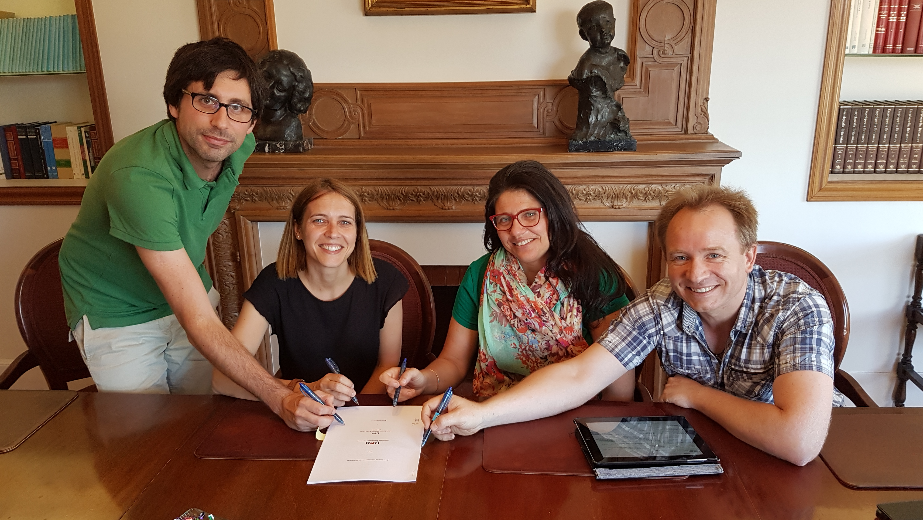
Detecting celiac disease is a long process that includes invasive tests, such as biopsies. At least that was the process until now, because BioEclosion has developed a biosensor called Celifast that detects the illness in the doctor’s surgery in a matter of moments with a device that looks like a glucose meter.
“We detect, but we do not diagnose,” says CEO, Jofre Ferrer-Dalmau, who points out that the final decision is always made by the health professional. What they do is “substitute the biopsy” for a quick blood test. “It is 60% cheaper than the current system, but provides a quicker test and avoids having to go through such a long process or doing tests like biopsies, which are too intrusive for children,” he adds.
The idea came about four years ago in the UAB. Its creator was the scientist Maria Isabel Pividori, who explained the project to the team in the Generació d’Idees 2013 programme in the Research Park of the Universitat Autònoma de Barcelona (PRUAB). “There they developed all the theory and we ended up as the second best project in the programme, so we decided to go on with it,” says Ferrer-Dalmau.
The team set up the company in the summer of 2016. “We had to because the technology had a patent that was entering a national stage and the university would no longer pay for it,” the CEO tells VIA Empresa, “it was all to safeguard the technology, which was still not ready to be built.” If they had not done so, it would have become open to any other researcher.
That was how the four people behind BioEclosion –with the backing of the UAB- began to work 100% for the company and gave up their other work, which had kept them going while everything was in the planning stage.
Slow but sure
Celifast could be on the market in three years. It is a fair amount of time and the CEO knows it, but it is necessary so as to fulfill the regulation requirements and to get the funding needed.
The biomarker is a platform capable of detecting different illnesses. The first they worked on was celiac disease and they have already shown that it works. They are now working on other sensors to detect malaria, dengue and aids, but the aim is to extend the list. “The device is immense and is in the laboratory. We are looking for funding to be able to move it to other places,” says Ferrer-Dalmau.
In 2015, they took part in the Valortec programme, where they came in second place and where they got the support of Acció. They have also taken part in the Next Tech of IQS with the aim of finding investors and right now they are in a programme of the Richi Foundation, as well as in the Imagine If contest.
The company is currently at the stage of finding funding to make prototypes of the technology and to do clinical trials so as to fulfill the brand standards of the European Commission.